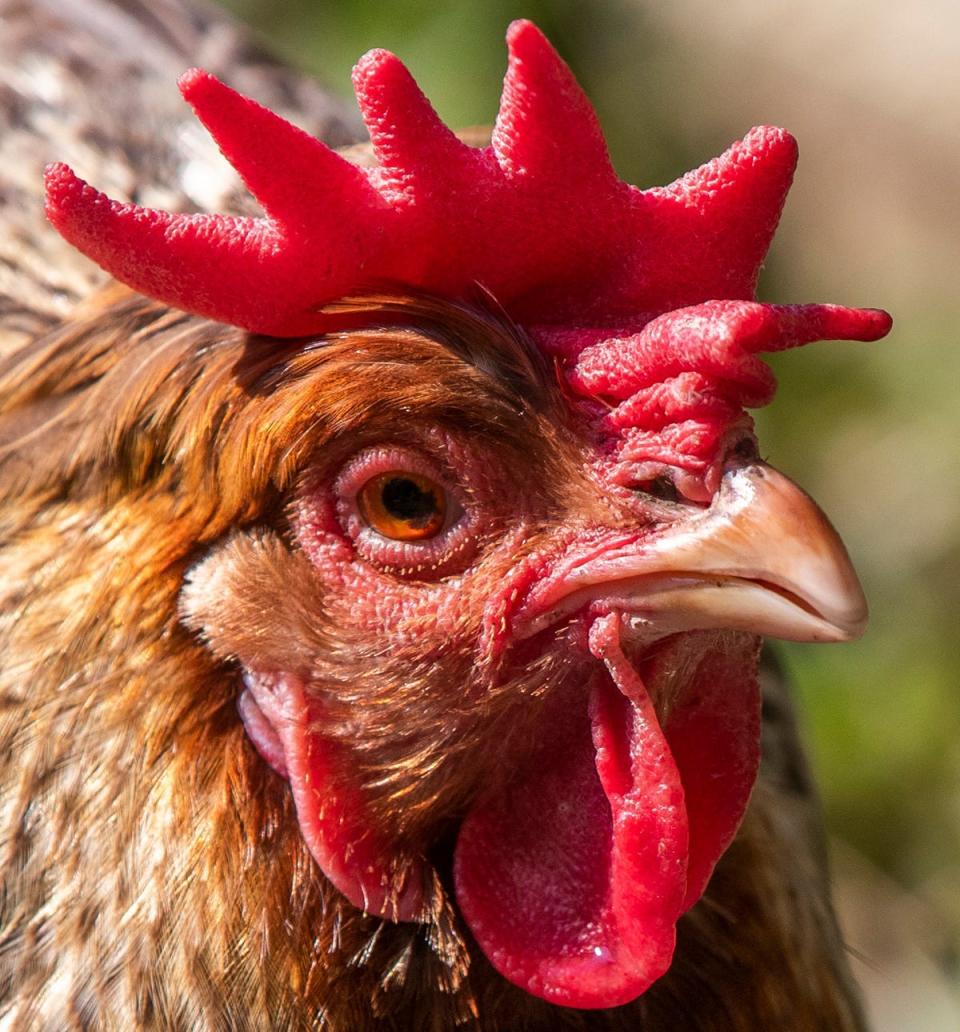Egg prices are up. Is it worth raising your own chickens? Is it allowed in Indianapolis?
With egg prices that are for the birds, more folks are considering raising their own chickens to produce breakfast.
The average price for a dozen eggs in U.S. cities had climbed to $4.25 in December, according to the Federal Reserve Bank of St. Louis.
Consumer demand for large white eggs is coming off its holiday levels but remained higher than it was at this time in 2022, according to a Jan. 6 USDA report. Americans are consuming more eggs as an alternative to meats while the industry has seen a slump in production due to bird (avian) flu. About 58 million birds have been infected with the disease as of last week, the department said.
That has folks entertaining the thought of raising chickens at their homes to produce eggs for their own use. It's a trend that started at the beginning of the pandemic.

Chicken supply store Agregrian, 1051 E. 54th St. in Indianapolis, saw a 50% increase in chick sales in 2020, said manager Megan Sharp.
Some of that was driven by adults and kids seeking activities during lockdowns. But a lot was driven by seeing store shelves bare of food staples, Sharp said.
Sharp expects current egg prices to lead to a similar demand when the store gets its first shipment of chicks later this month.
Before taking the plunge into urban chicken farming, consider:
Can you legally keep chicken in Indianapolis?
You can.
A residence can have up to 12 adult fowl – any mixture of chickens, ducks, quail and pigeons. One rooster is allowed, but it has to be kept in a coop from dawn to dusk. (Be prepared to face repercussions from his nosiness.)
Buying chickens in Indianapolis
First off, you’ll likely have to buy more than one.
Chicks cost $5 to $9, depending on the breed, at Tractor Supply Co., 8815 S. Atlantis Drive in Indianapolis, said team lead Jaiden Baker.
Tractor Supply is among places with policies against selling customers a single chick.
Others, Agrarian for one, strongly discourage it, as chickens thrive in flocks, particularly for the first few weeks. And the stores don’t want the birdies being treated as Easter novelties.
It might not be that cost effective.
You’re going to have to shell out a grip upfront and then continue to spend on your flock.
The startup costs could range from $200 to $500.
A chicken coop could cost between $300 to $900. Then there’s bedding and feed — the best-selling feed at Agrarian costs about $1.33 a week per bird.
And special lights are needed to keep the chicks warm, Baker said.
“Unless you have a very large amount of chickens and you are selling the eggs, there’s not much profit there,” Baker said. “It would be cheaper to go to the store and buy a $3 carton of eggs.”
Beyond all that, you might want to factor in the cost of a vet for overall care and the development of a nutrition plan, said Nathan Shoaf, Diversified Farming and Food Systems Program leader and Urban Agriculture coordinator for Purdue Extension.
“That’s one of the things you just don't think about. What if one animal gets a particular illness and then that transfers quickly?” he said. “If you're not prepared for that in terms of your budget, it can kind of sneak up on you and get really, really expensive at some point.”
Don’t count your eggs before they’re laid.
If you bought chicks today, you couldn't expect to start scrambling until about six months from now, when they mature.
That would put your chicks in the sweet spot for egg laying, as hens produce more in the spring and summer, Shoaf said.
The number of eggs laid swings. Hens can lay one to eight eggs a day, Baker said.
Sometimes in the winter, weeks can pass for a hen without producing an egg.
It’s a Hoosier thing.
If you do decide to take the plunge and raise chickens for eggs, you’ll be doing Indiana proud.
Of the 50 states, Indiana is the second biggest producer of eggs with about 37 million Hoosier hens doing the laying in November 2022, compared to about 35.9 million in November 2021, according to the USDA Chicken and Egg Report released in December. Leading state Iowa had about 41 million in November, down from about 49.5 million in November 2021.
Contact IndyStar reporter Cheryl V. Jackson at cheryl.jackson@indystar.com or 317-444-6264. Follow her on Twitter:@cherylvjackson.
This article originally appeared on Indianapolis Star: Considering raising chickens for eggs? Here's what you need to know

